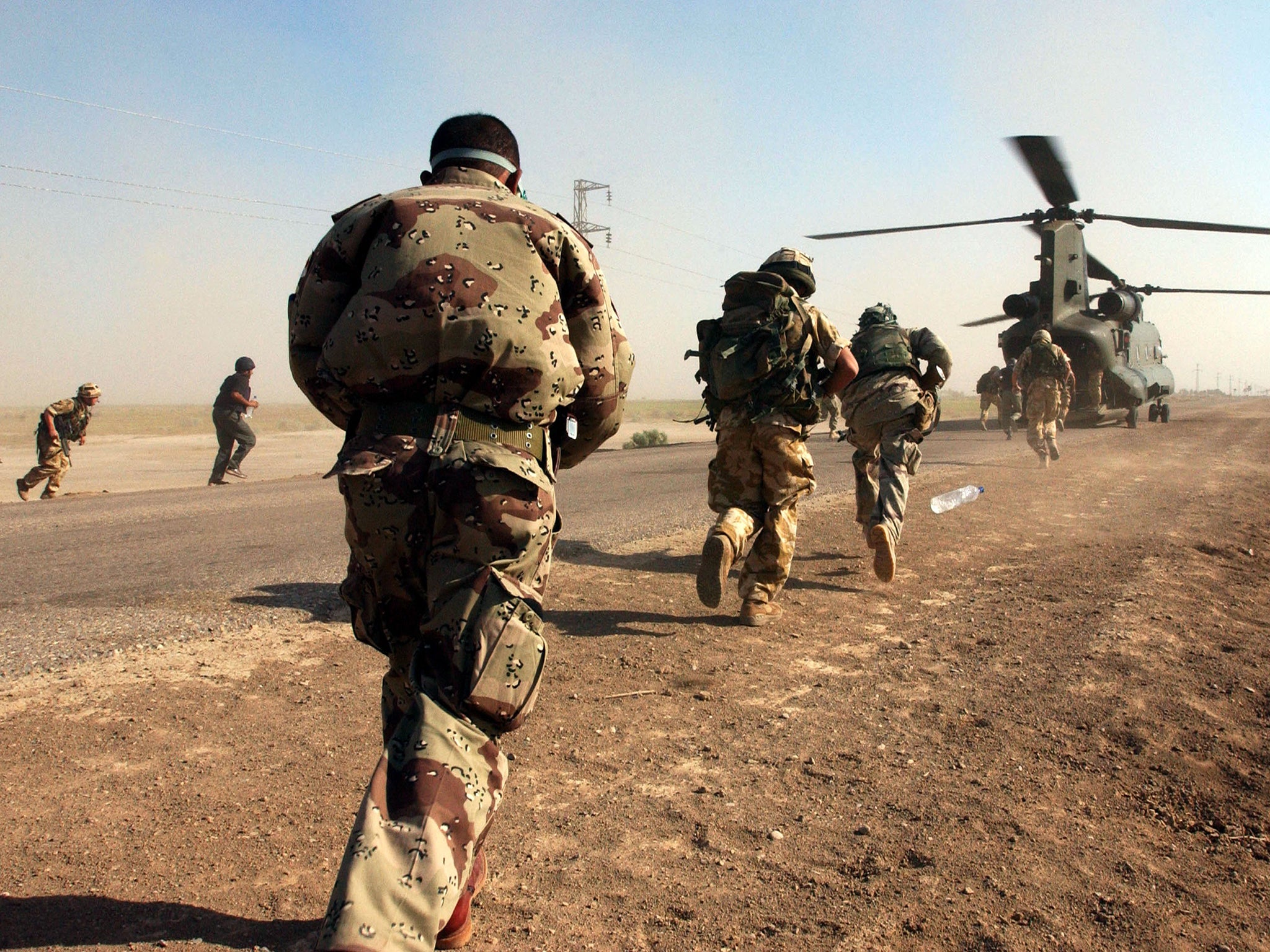Al-Sweady inquiry: Timeline of key dates in the £25m probe
British soldiers found to have breached Geneva convention

A judge-led inquiry into some of the most serious allegations of brutality ever levelled at British soldiers has returned its final report, finding that there was, in some cases, mistreatment of detainees.
On the claims of murder, mutilation and torture in the wake of the 2004 Battle of Danny Boy in Iraq, the inquiry found that the allegations were false and stemmed from "deliberate lies".
These are the key dates in the long-running investigation that up to 30 November had cost taxpayers almost £25 million:
:: May 14 2004: The Battle of Danny Boy, a firefight between British soldiers and Shia insurgents takes place at a checkpoint near the town of Majar-al-Kabir, Maysan.
:: May 15 2004: 20 bodies are returned to Iraqi families by British forces.
:: May 17-19 2004: The International Committee for the Red Cross (ICRC) visits the British detention centre. Allegations of mistreatment emerge. ICRC doctors accept there are grounds for concern and call on the British to investigate.
:: May 19 2004: A draft letter is drawn up by then armed forces minister Adam Ingram to Tony Blair informing him of the allegations.
:: May 20 2004: Royal Military Police (RMP) - responsible for investigating claims of wrongdoing by soldiers - are given permission to question soldiers and obtain evidence about the Iraqi claims.
:: October 2007: Judicial review proceedings are issued.
:: April 2009: The Government denies any wrongdoing on behalf of the soldiers and says the Iraqis were killed during the gun battle.
:: July 2009: A review into the RMP's investigation finds that it failed to collect forensic evidence, ignored key witnesses and did not ask Iraqi witnesses relevant questions, according to a report from Greater Manchester Police.
:: August 2009: A judicial review begins. As part of the process, a legal battle at the High Court against the Ministry of Defence (MoD) is bought by the uncle of Hamid Al-Sweady and five other Iraqis who claim soldiers murdered and assaulted prisoners captured during the fighting.
:: October 2009: Three High Court judges accuse the MoD of "lamentable" behaviour and "serious breaches" of its duty over the failure to disclose crucial information about allegations of murder and ill-treatment by British soldiers in Iraq in 2004.
:: November 2009: Then-defence secretary Bob Ainsworth announces there will be a public inquiry into the allegations that Iraqi nationals were detained and unlawfully killed, and that others had been mistreated at that camp and later at a detention facility.
:: March 4 2013: The Al-Sweady public inquiry opens. It is chaired by retired High Court judge Sir Thayne Forbes, who was the judge in the trial of serial killer Dr Harold Shipman. Sir Thayne is asked to take account of the investigations which have already taken place and make recommendations.
:: March 20 2014: Lawyers representing the alleged victims' families drop claims that their relatives were killed by soldiers while in custody on the last day of live evidence.
:: April 16 2014: The inquiry hears closing oral submissions from participants, which conclude the full public hearings.
:: December 17 2014: Sir Thayne reports on his findings, bringing the Al-Sweady inquiry to an end.
Subscribe to Independent Premium to bookmark this article
Want to bookmark your favourite articles and stories to read or reference later? Start your Independent Premium subscription today.

Join our commenting forum
Join thought-provoking conversations, follow other Independent readers and see their replies